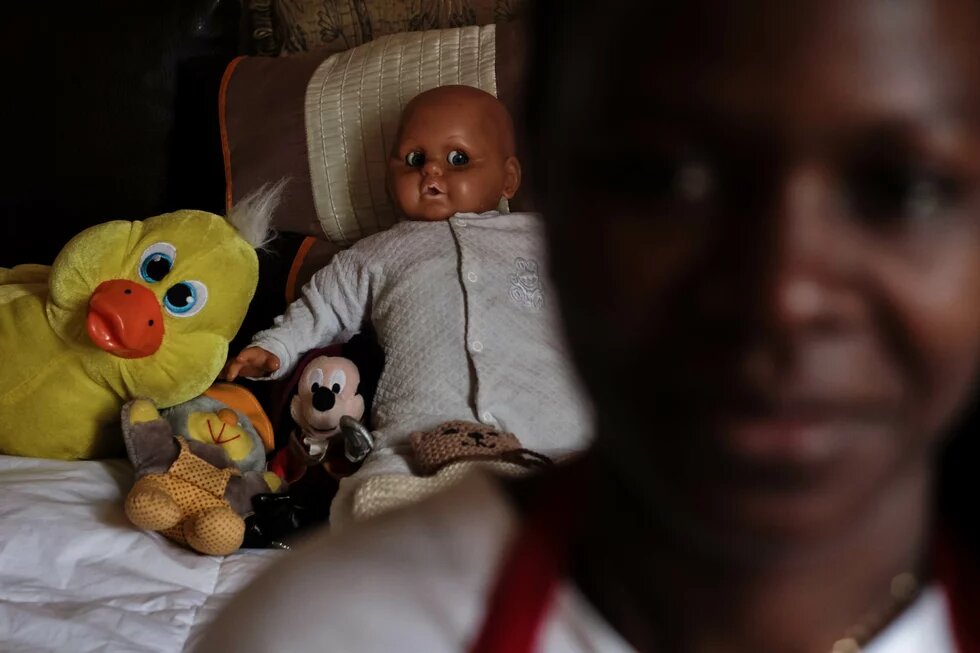
After 25 years of being in an abusive relationship, mother-of-three Stephanie Williams* is lucky to have walked away alive with just a bullet lodged in her head.
Even after having been shot five times by her abusive husband the last bullet having lodged in her head Williams still tried to reconcile with him.
Only after the shooting and a continuation of the assault after she returned home from hospital did Williams find the strength to take her children and leave.
After she was shot, and as she lay recovering in her hospital bed, Williams was confronted again by her husband, who came at her with a knife.
“Let’s see how you survive this one, because you apparently have nine lives,” he told her.
“I was so scared, and in so much pain. But luckily the security guards caught him and chased him out,” Williams said, describing some of the abuse she survived.
But once she was discharged, she decided to go back to her husband, believing there was nowhere else for her to go. Her family members, who admired what appeared to be her comfortable lifestyle, were not willing to help, believing she was privileged and had everything her heart desired.
“I wanted to be rescued as I didn’t have a proper up bringing as a child. I was physically and emotionally abused when I was young, so that is all I knew. When I married this man I didn’t know how to be loved,” she explained.
Safety threats
And so she returned home, and once again had to face regular threats to her safety.
A week after her discharged from hospital Williams finally realised she had to leave if she wanted to survive. So when her husband left the house for work, she packed her clothes and those of her two-year-old son and fled. She had no money and did not think she would be able to manage to take the other two children as well.
“Being alone with that man was a painful and terrifying experience. Sometimes I didn’t take my children to school because of the fact that I will be tortured. He would beat me and sometimes rape me,” she said.
“Firstly I didn’t know where I was going, but I knew that for me to stay alive I need to get out of that hell hole. I took a train to East London and met with someone from my church who gave me money and bought me a bus ticket to go to Joburg,” said Williams.
She arrived at Johannesburg Park Station and immediately approached some policemen she saw patrolling the station. She asked them for help, and was taken to a shelter called Usindiso, which accommodates women and children overnight.
She spent a short amount of time at Usindiso before being moved to a shelter in Bekkersdal, because she felt unsafe in Joburg.
After everything she was still tempted to go back to her old life, because at the shelter she was not given everything she wanted and had to ask the shelter manager for anything she needed.
Empowerment
But she stayed at the shelter, where she was counselled by social workers, and began to realise her own selfworth and feel empowered.
“I also wanted more out of life than to depend on a man who beats me and wants to kill me.”
Williams worked very hard during her stay at the shelter in Bekkersdal. She tried to make contact with her children that she had left behind, but this resulted in her husband finding out where she was and trying to kidnap her.
But she managed to get away, and also rescued her other two children. With assistance from the Bekkersdal shelter, she and all her three children were relocated to another shelter where they remain in hiding.
At the new safe haven she started working as a security guard where she managed to prove herself and was eventually promoted to the position of shelter manager.
Now Williams at last feels safe and happy, and wants to encourage other women who feel terrified and unable to escape from their abusers.
“I want women to know that there is help out there, and there are people who care,” she said.
Women in need of help can contact POWA (People Opposing Women Abuse) on 011 642 4345 for assistance.
-----
This article has been edited for clarity. The original article, which was published on the 29th of August 2017, can be accessed online via http://www.health-e.org.za/2017/08/29/shelters-empower-abused-women/